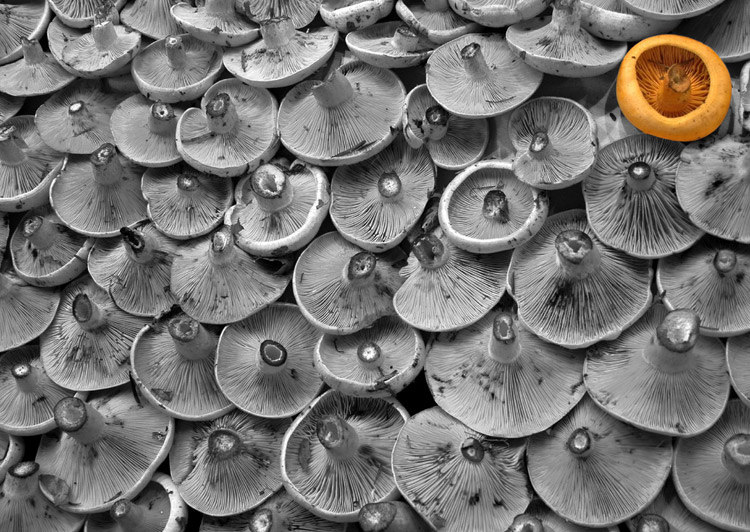“Have you found a job yet?” This is a very common question when two people know each other and are on the verge of entering the workforce, such as the second-year MBA students at IESE right now, who will be graduating in a matter of weeks. But the answers can vary, depending on who is asking the question. The person on the receiving end of this question may give an evasive answer—after making a quick comparison—if they feel their professional position could be considered “inferior” to other person’s. But it’s a different story if they think have a more prestigious position.
In his book “Happiness,” Richard Layard, economist, professor emeritus at the London School of Economics and a member of the British House of Lords, argues that the two causes of a person’s unhappiness are complacency (not knowing how to enjoy what one has) and comparisons. But what does it mean to make comparisons? How does it affect us?
There are many studies that validate the expression “in the land of the blind, the-one eyed man is king.” What would you prefer: to earn $100,000 in a social milieu in which your “equals” (other people with whom you are similarly equipped) earn $120,000? Or earn $80,000 in a setting in which everyone else “only” earns $70,000? The answer tends to be: $80,000!
The conclusion is simple: the actions of those who check the $80,000 box are influenced by the environment. And when people get carried away comparing themselves with the environment, it can have extremely negative consequences on them as individuals and, therefore on their personal and professional lives as well.

Fickle environments and subjective perceptions: a deadly combination
In order to get the complete picture, we need to consider two factors: the environment is fickle and everyone’s perception of it could—and often does—prove to be off base, at least partially. As such, decisions driven by comparisons are often amiss.
Let’s turn to the corporate realm. An employee observes coworkers who belong to the same professional group. And compares him or herself to those coworkers. One, for instance, seems to be very in tune with their superior. Another performs better due to having a more aggressive personality.
How will this employee react? Most likely by trying to imitate their peers, striving to be friendlier with their superior (when perhaps they are not) or taking a more aggressive approach to their work (a quality they likely don’t possess).
So what’s the conclusion? We are talking about someone who is incapable of controlling the impact that comparison with their environment has on them personally, on their behavior and on their professional output.
This tendency to compare oneself is not limited to just the work environment, because it’s still the same person. In the social and family spheres, comparisons can also have harmful effects, such as changing (whether consciously or not) the order of priorities or one’s values scale.
Indeed, trying to make ourselves out to be something we are not, or cannot be, never leads to anything positive. For instance, within a relatively large group, if someone has no chance of attaining the same level of material well-being as everyone else but still attempts to do so, they are probably failing to meet certain obligations. I’m referring to things as frivolous as the type of car, vacation or travel. Is it worth striving to “be on their level” while neglecting things such as investing in the education of one’s children? Naturally, we would all say “of course not.” However, in the day-to-day reality…
Keys for leading one’s life
At the source of comparison lies a lack of assuredness in oneself and one’s values scale (assuming, of course, it is defined). An insecure person will depend on the opinion of others to gain a façade of happiness , however superficial and fleeting, since it is based on remarks that might come from a coworker, a superior, an acquaintance or even a friend. For this reason, the impact of the valuation that one feels everyone else has for them is a poor gauge.
In the business world, everyone must be aware of the role they should play and what their capabilities are . Perhaps they are not the nicest person, but forcing themselves to be nice often has “devastating results.”It may be obvious to some, but in order to start solving the problem there needs to be a premise: to be aware that people tend to compare themselves and that this attitude affects them in many ways. So many people are not aware and thus live enslaved and inhibited by a complex, because there will always be someone seemingly better or more fortunate.
And, of course, to have solid convictions that our sense of security is founded upon. This is the right measuring stick. Using someone else’s only creates a greater sense of endless frustration.



i prefer to call it benchmarking to try and motivate yourself to fight harder. you compare yourself with your peers to measure your pogression